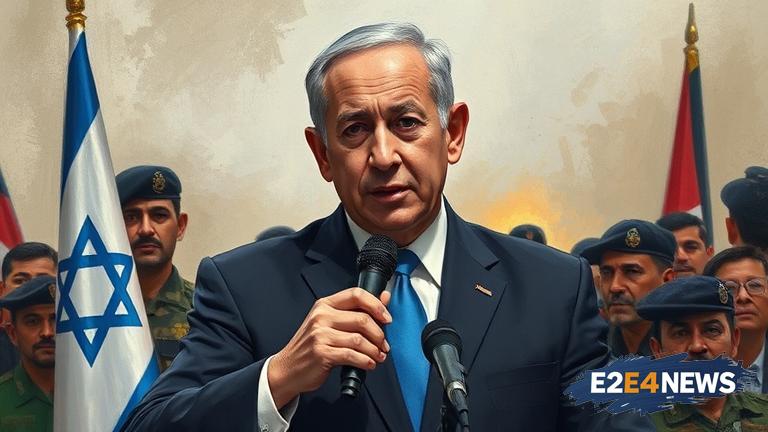The Israeli-Palestinian conflict has taken a dramatic turn, with Israeli Prime Minister Benjamin Netanyahu warning of a potential military solution to free hostages held by Hamas. According to sources, Netanyahu has vowed to take decisive action to secure the release of Israeli citizens being held captive by the Palestinian militant group. The threat of military action has sparked concerns of escalating violence in the region, with many fearing a repeat of past conflicts. The situation has been deteriorating for months, with tensions simmering between Israel and Palestine. The recent escalation has been marked by a series of violent incidents, including rocket attacks and retaliatory airstrikes. The international community has been calling for calm and restraint, but so far, efforts to broker a peaceful resolution have been unsuccessful. The United States, a key ally of Israel, has been urging both sides to exercise restraint and return to the negotiating table. However, with Netanyahu’s latest threat, it remains to be seen whether a military solution will be pursued. The Israeli government has been facing mounting pressure to take action, with many Israelis demanding that their government do more to protect its citizens. The Palestinian Authority, led by President Mahmoud Abbas, has been accusing Israel of exacerbating the situation and undermining efforts to achieve a peaceful resolution. The Hamas militant group, which controls the Gaza Strip, has been refusing to release the hostages, citing Israeli aggression and occupation as the reason for their detention. The situation has been further complicated by the involvement of other regional players, including Iran and Turkey. The Iranian government has been accused of providing financial and military support to Hamas, while Turkey has been trying to broker a peaceful resolution. The European Union has also been calling for calm and restraint, with many of its member states expressing concern about the potential consequences of a military escalation. As the situation continues to deteriorate, there are fears that a wider conflict could erupt, drawing in other regional players and causing widespread instability. The humanitarian situation in Gaza is already dire, with many Palestinians struggling to access basic necessities like food, water, and healthcare. A military escalation would only exacerbate the situation, causing further suffering and displacement. The international community must act quickly to prevent a catastrophic outcome, with a renewed focus on diplomacy and negotiation. The United States, in particular, has a critical role to play in brokering a peaceful resolution, given its close relationship with Israel. However, with the current administration facing its own domestic challenges, it remains to be seen whether it will be able to exert sufficient pressure on both sides to return to the negotiating table. In the meantime, the people of Israel and Palestine continue to suffer, caught in the midst of a conflict that seems to have no end in sight. The latest developments have sparked widespread condemnation, with many world leaders calling for an immediate end to hostilities. The United Nations has also been urging both sides to respect international law and protect civilians. As the situation continues to unfold, one thing is clear: a peaceful resolution is the only way to bring an end to the suffering and instability that has plagued the region for so long.





